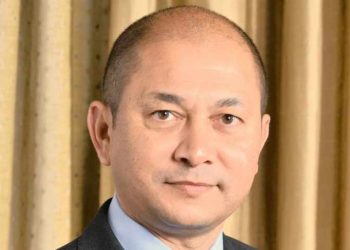Cape Town – An 82-year-old pensioner from Cape Town discovered his case files had been destroyed by the Cape Law Society (CLC) after begging them since 1981 to assist him after his inherited family house and money were allegedly stolen by crooked attorneys.
Richard Benson had been working tirelessly over the years to pay new attorneys for the finalisation of his mother’s estate but it had only left him bankrupt and homeless due to alleged corruption within the law fraternity.
He said he approached the police, CLC and the government, but nothing has been done about his property and money other than attorneys being arrested or struck from the roll.
Benson, who survives on a grant from the South African Social Security Agency (Sassa) and a charity organisation in England, said his only wish before dying was to retrieve the Rondebosch property that his mother left him in her final will 40 years ago.
After her death, he approached an attorney to make ownership changes to the property, but became suspicious when the attorney delayed the process and could not provide evidence of his payments into the firm’s account. Benson said he took the matter to the CLS and police to investigate.
By 2002, after appointing nine more attorneys to finalise the estate, it was still not completed due to what he claimed was corruption by his new attorneys, one who had allegedly staged a house robbery to steal the property’s legal documents, he claimed.
Independent Media was provided with the names of the attorneys involved in Benson’s matter, documents from the police, court, law firms and law societies as well as letters to and from the government and media, dating back to the 1980s.
“Despite all the efforts, nothing has been done. The attorney I employed first had failed to finalise the estate and because he did not provide me with evidence of my accounts, the estate remained unfinalised,” he said.
“I was conned by attorneys who knew how desperate I was to get back my property. By 1995, five of the attorneys had already been arrested and struck from the roll, but nothing was done about my house. I also spent several years in and out of court trying to get my money back from them and to set aside falsified bills, some which were declared unlawful by the courts between 1995 and 1997.
“I couldn’t afford to employ another attorney by 2001. These crooks drained my last money. I was removed as an executor of the estate thereafter due to bankruptcy.”
By 2002, as a result of bankruptcy, Benson’s property, through the dealings of one of his attorneys, was set for auction. On January 29, 2002 he was evicted from his home to prepare for the selling of the property.
Fair Civil Law, an organisation providing legal advice, wrote to the Master of the High Court on the same day arguing the eviction and auction were unlawful due to no eviction court order in place and no court order authorising the sale of Benson’s mother’s estate.
The Ministry of Justice and Constitutional Development was notified about the matter, and responded in a letter dated May 16, 2002, they would forward it to the Minister of Police to follow up on, but no feedback was provided thereafter.
The SAPS in August 2002 advised Benson they could not intervene or arrest any attorney until the outcome of an investigation by the CLC. But endless calls to the CLC were fruitless, said Benson.
He complained he has never been compensated by the attorneys for all the losses caused and the loss of his litigation. “I am a pensioner and have no money left to continue my fight. I only want justice and the home my mother left me before I die.”
The Law Society of South Africa (LSSA) referred the pensioner to the Legal Practice Council (LPC) as his matters were previously handled by the CLS, which is now the LPC. The LSSA also referred the complainant to the Legal Service Ombudsman, former Cape Town High Court Judge Siraj Desai. He was unable to comment.
The LPC explained Benson’s files no longer existed. “We will not be in a position to comment on the complaints lodged by Benson against his previous attorneys, as they all date back more than 10 to 20 years, and the files have been destroyed,” said LPC’s communications manager Sthembiso Mnisi.
When asked why the files were destroyed and if this was a norm, he said “by law, firms were allowed to archive or destroy files older than a certain number of years”.
Mnisi said he was aware of Benson’s matter and that it had been investigated by the police. “Benson had approached the Specialised Commercial Crime Unit in Bellville with regard to his allegations of criminal conduct on the part of various attorneys. We are unaware of the outcome of these investigations.”
He was only able to locate two cases on the pensioner from 2008 wherein he arranged a pro bono lawyer, and said they were currently in the process of retrieving another file from their 2014 archives. “Once the file is at hand, we should be able to expand on the above.”
Investigations Unit


















